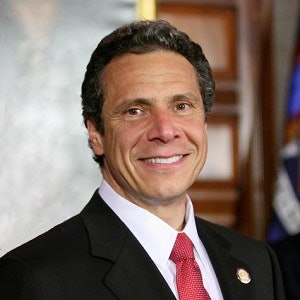New York Governor Andrew Cuomo’s 2019-20 budget proposal released on Tuesday, includes new regulations and more stringent oversight for New York’s for-profit colleges.
In its March 2018 report “Grading New York’s Colleges,” The Century Foundation (TCF) presented evidence that New York’s for-profit schools had displayed a pattern of failing to meaningfully serve their students, most notably African-American and first-generation students. As reported in Diverse, many for-profit schools show high default rates on student loans and little increase in students’ earning potential.
TCF is a New York City-based public policy think tank. In addition to presenting the report, for more than a year TCF in coalition with other advocacy and legal organizations has led a campaign for stronger protections for New York students.
 Andrew Cuomo
Andrew Cuomo“I am excited to see the Governor putting out this proposal and leading in the demonstration of what states can do — stepping in where the federal government is stepping back in protecting students,” said Yan Cao, TCF fellow and author of “Grading New York’s Colleges.”
“That’s been the framework for The Century Foundation’s work in New York State.”
Cao noted that at the national level 99 percent of student complaints about fraud at higher education institutions are against for-profit colleges, which enroll a small portion of the country’s students.
In New York, TCF released testimony with its partner organization Empire Justice pointing out that even though for-profit colleges in New York enroll only about four percent of higher education students, they’re accounting for 41 percent of student loan defaults when looking at default numbers five years out.
“When you’re talking about a student debt crisis and student loan debt and defaults, part of the problem you’re talking about is the problem of for-profit colleges that are setting high prices, targeting vulnerable students and then leaving them with a lot of debt, but not degree attainment, employment options or the ability to repay that debt,” said Cao.
In addition to a September 2018 letter to U.S. Secretary of Education Betsy DeVos commenting on the U.S. Department of Education’s proposal to eliminate the 2014 federal “Gainful Employment” rule, TCF and the coalition called on New York state to step in and think about what it could do to fill the void.
“It seems Gov. Cuomo has really listened to that call for state leadership and has come up with these creative and novel approaches, in some cases going further than what was previously in place in the federal policy,” said Cao.
One of Cuomo’s proposals expands the federal 90/10 policy, in which for-profit colleges are not eligible to receive Title IV funding from the federal government if they can’t demonstrate that they’re getting at least 10 percent of their revenue from market competitive sources. Cuomo’s For-Profit College Accountability Act in the Executive Budget will require for-profit schools to report their funding sources and demonstrate that they are not receiving more than 80 percent of their revenue from taxpayers, including federal grants, loans and TAP.
Another requirement would be that for-profit colleges spend at least 50 percent of their revenues on instruction and learning as opposed to recruiting, marketing and advertising.
 Yan Cao
Yan Cao“To my knowledge, the instructional expenditure approach is not one that has been used by states or the federal government in the past as an accountability metric,” said Cao. “Our research has shown that 71 percent of for-profit colleges in New York would not meet a 50 percent threshold because they spend so little of their overall revenue on instructional expenditure.”
Other proposals are to require that schools report the salaries of college presidents and senior leadership, as well as any salary incentives and bonuses. Also, school leadership would be prohibited from serving on an accreditation board of an organization responsible for oversight of the for-profit college.
“If they attach these requirements to some of the tools at the state’s disposal, including a significant amount of state grant aid and also state licensure tools, that would have a significant impact in cleaning up and putting some significant guardrails on the way that for-profit colleges operate in New York,” said Cao.
Additional details about these proposals and implementation will become available shortly. At this time, interested parties can make their voices known to their state representatives.
“It could be a model to demonstrate what it looks like to have a well-functioning for-profit sector, one that prioritizes the outcomes for students and instruction and doesn’t just exist to take in taxpayer money while providing little value for students,” said Cao.
Cuomo also outlined new requirements for student loan servicers, which would include greater transparency for the student loan industry. The Executive Budget provides for an increase of $143 million for higher education in New York State in order to keep tuition rates at public four-year institutions affordable and create greater access. There is also a DREAM Act proposal to allow undocumented students to access the Excelsior Scholarship, the Tuition Assistance Program, as well as other state-administered scholarships.


![Mentor Mentee [60287]](https://img.diverseeducation.com/files/base/diverse/all/image/2024/04/Mentor_mentee__60287_.662959db8fddb.png?auto=format%2Ccompress&fit=crop&h=100&q=70&w=100)


















